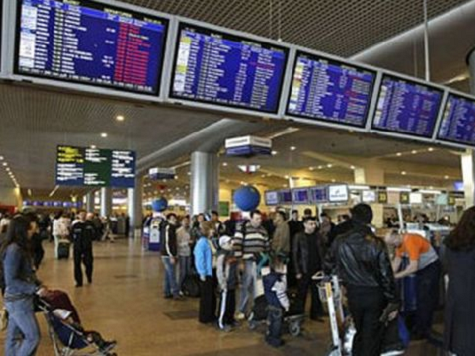
Last week three airline trade organizations joined together in legalaction against the FAA. During a press conference announcing the suit,the heads of two of the organizations made clear they believe the FAAhas become a political football in the hands of an administrationplaying sequestration politics at the industry’s, and the public’s,expense.
In the weeks leading up to the enactment of sequestration, the Obamaadministration did its best to generate fear about the effects ofsequestration. For instance, Education Secretary Duncan claimed on Facethe Nation that teachers were being laid off. This was false, as was aclaim the President himself made about sequestration leading to therelease of “criminals.” Politico put together a round-up of six administration claims about sequestration, all of which were rated false by various fact-checking organizations.
But it appears the administration is not done playing politics. Lastweek, the FAA announced it would begin one-day-a-week furloughs of airtraffic controllers in order to comply with sequestration. A lawsuitfiled by Airlines for America (the airlines trade association), the AirLine Pilots Association, and the Regional Airline Association, arguesthe Budget Control Act gives the FAA freedom to completely avoid cuttingessential personnel.
For its part, the FAA says this is not so. In testimony before Congress this week,FAA administrator Michael Huerta claimed it was not possible to meetthe required level of cuts without dipping into personnel salary, whichmakes up about 60% of the FAA budget.
However, even assuming furloughs were inevitable, the trade grouplawsuit argues it was neither wise nor necessary under the Budget Control Act to treat all airports asequally important. By prioritizing furloughs based on the amountof air traffic affected, the FAA could have significantly minimized the pain to the public.So why didn’t the FAA choose to do so?
According to the Washington Post, the FAA made an agreementwith the air traffic controllers union to distribute cuts equallyacross the union’s membership. The result is that furloughs are felt atmajor airports, like LAX, JFK and O’Hare, which handle a disproportionate amount of overallsystem traffic. This is how a 10% cut inoperations translates into an estimated impact on 40% of all flights. TheFAA chose to minimize the pain of the controllers’ union atthe expense of the flying public and the industry.
But there is reason to suspect this negative outcome is, if not welcome, being viewed as an opportunity by the Obama administration. Nicholas E. Calioof Airlines for America says he asked the FAA to consider putting the brakes on furloughs, as it did with tower closures, to allow for the possibility of a legislative fix. The response, according to Calio, was that, “the administration willnot support any such legislation unless itspecifically solves theentire sequestration problem.” This certainly sounds like an attempt to use the pain of furloughs to create leverage for a broader deal.
Any doubt that this was part of a coordinated message vanished Tuesday when Senate Majority LeaderHarry Reid echod the administration’s approach, “We cannot and should not only address the FAA cuts.” And that wasn’t all. According to the NY Times, immediately after his appearance before Congress Wednesday, FAA administrator Huertamet with reporters. During the meeting, he referred to Sen. Reid’s comments about making a furlough fix part of a larger bargain. Finally, later in the day, White House Spokesman Jay Carney echoedthis idea once again, though he did allow that an FAA-only fix might be a possibility.
So there is reason to believe the FAA did not do all it could tominimize pain to the public. And there isreason to believe the administration has been using the furloughs to push a sequester replacement deal. At the least, the White House is attempting to capitalize on its own managerial incompetence.
But at the end of last Friday’s 30 minutepress conference, Captain Lee Moak of the Air Line Pilots Association suggested the administration seemed to be up to something worse. “Cut to the chase here. They’re using the air system–they–asa political football,” he stated. Asked to clarify whom he meant, Captain Moak responded, “Whoever is making that decision in the administration, they are using this as a political football.”

COMMENTS
Please let us know if you're having issues with commenting.